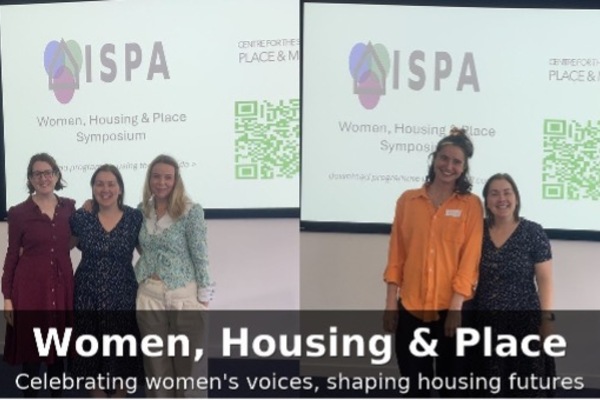
Regina Serpa was awarded the Housing Studies Association’s 2017 Valerie Karn prize for early career researchers for her paper Exploring Migrant Homelessness: Narratives of Survival, Freedom and Opportunity. Here she shares some of the key themes from that paper.
‘I didn’t come here of my own accord, and I can’t leave that way.Whoever brought me here will have to take me home’, – Maulana Rumi (1207-1273)
In the poem ‘Who says words with my mouth?’ Rumi offers a pointed longing to know where our place is. Most, at some stage in their lives, can identify with this sort of existential dislocation expressed by Rumi some 700 years ago.
Others, after losing home and belonging, feel this displacement more deeply. Having interviewed 30 homeless migrants in the UK and US as part of my doctoral research, I am struck by the multiple ways in which one can be without a home and what it means to be without ‘place’, physically and socially.
The migrants from Eastern Europe in Scotland and Central America in Massachusetts that I spoke to experienced homelessness twice; first, in the process of migrating and the experience of disorientation that comes with moving across borders, and second, finding oneself without a physical home in a new country. Liminality is a recurrent theme in the narratives of homeless migrants, the experience of occupying no place in the transition between places, be it ‘place’ in a spatial sense (from sending country, to host nation) or by status (from homeless to housed, from stranger to citizen).
By investigating the housing strategies of migrants comparatively, I have explored the ways in which people respond to homelessness, focusing in particular on how people exercise agency in the context of extremely constrained choice and manage the struggle for place and belonging. Some participants in the study feel they occupy a no-man’s land, after fleeing their home country and find themselves in a new place with few or no rights. In my paper, I write about migration for survival to describe the circumstance of respondents who ‘can’t literally go home again’ (Hall, 1990). Valeria was one such participant in the study who was homeless in Boston and unable to return home after fleeing civil war in Guatemala. She explained to me, ‘That is no longer home… the rebels showed up there, killing people… it got me scared, I had to leave’. Valeria did not come to America of her own accord, and she cannot leave that way.
For other participants in the study migration was not so much a matter of life or death, but rather the difference between being free or not free- physically, socially, or financially. To Luciana, for example, migration for freedom meant securing civil liberties in America that were denied to her in the Dominican Republic. As an unmarried pregnant teenager she described being a social pariah, without place or belonging, explaining ‘I had to move… because that’s not my place’. Similarly, many Roma participants were explicit about migrating to Scotland so that their children would experience freedoms that they were deprived of in Romania. Andrei told me matter-of-factly, ‘It’s better here in Scotland because here is different than in our country, I have been thinking about these children, to make them a future and to realise something in our lives’.
Some respondents in the study challenged my perception of what I thought it was to have a home. Having escaped persecution elsewhere, the relative freedom secured and improved material condition experienced in this new place imparted a deep-seated sense of optimism and feeling of opportunity, even in the face of absolute poverty and homelessness. Vasile, for example had left Romania where he lived in a cobb house, sharing a room with several extended family members, only for him and his family to live in similarly overcrowded conditions in a Scottish city. He explained his migration for opportunity through his profound feeling of being welcomed in Scotland, despite the hardship: ‘Which would you chose, a mother who neglects you or an adoptive parent who loves you?’
Being a migrant myself I can identify with Vasile’s affection for a ‘host country’ in which you feel welcomed, accepted, and safe. I can only imagine how much more intense these feelings must be if you have come from a place of dis-privilege, alienation, or oppression. And, in such a context, how you might feel at ‘home’ even when without a home.
Regina C. Serpa
Doctoral Researcher, Heriot Watt University
References
Hall, S. (1990). Cultural Identity and Diaspora Identity: Community, Culture, Difference. Londres, Jonathan Rutherford (ed.).






